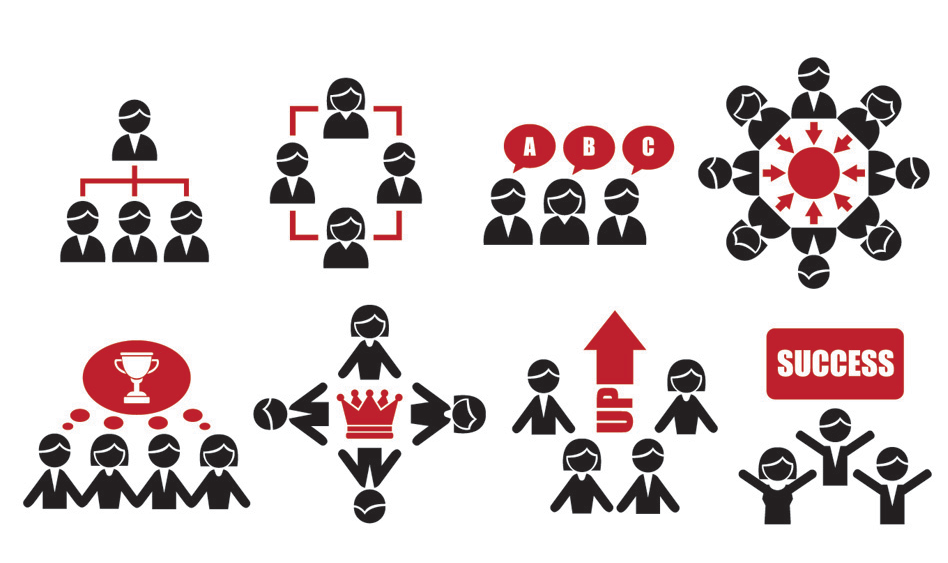Table of Contents
One of the most important resources you have at your disposal is time. Often, time is in short supply, and there simply aren’t enough hours in a day to get everything done. Plus, everyone needs a little rest and relaxation, if they want to reach peak productivity. You can get the best of both worlds with these simple tips and tricks on how to better manage your work time.
1. Account for Distractions
Distractions are something you’re going to have a deal with during work. Usually, these are the main reasons why people have trouble managing their work time. You shouldn’t underestimate the importance of managing it. Poor time management can actually be very harmful to you and your work.
Many tips and trick lists argue that you should try to block out distractions as much as possible, and that’s certainly sound advice. Turning off your phone, blocking out certain sites that are not work-related, all of these things can definitely help.
But if you still find yourself distracted from work, forcing yourself to stay focused might not do the trick. What’s worse, you might end up wasting a lot of your time merely trying to find ways to keep your mind on the task at hand rather than actually working on it. Hence helping time Management in the Workplace.
So, you should try to include these distractions in your daily work schedule and work around them. Say you know you just have to watch that new episode of your favorite series. Instead of trying to convince yourself you’re not going to watch, try to make-up for those 20 or 40 minutes you’re going to spend watching TV. Maybe you can tack them on at the end of the day, or you can cut short a few other activities.
2. Share the Burden
If the sheer amount of work you have to do is interfering with your plans, remember that you don’t have to do all of the work yourself. Managing your work time properly is not just about finding ways to keep you focused on the job and avoid distractions. It’s also about maximizing the amount of stuff you can do during that time and finding creative ways to fit work in during periods that would otherwise be wasted.
One of the ways you can do that is to invest in some online tools that can help you manage your work better. Many companies are aware of the importance of flexibility and mobility when it comes to work, and they provide their employees with tools that can help them with that, like the CVS learnet platform.
These types of tools allow you to access your work-related info anywhere you have a working internet connection. That way, you will no longer be bound to your desk when it comes to completing your tasks. You can get a head start on your projects whenever you find a few minutes to spare. And tools such as these can also help you keep an eye on your tasks and deadlines.
3. Don’t Spend Too Much Time Planning Your Day
When you start out your day, if you have trouble managing your work time, one of the best things you can do is write down a schedule for that day, week, or month. It’s going to give a set of goals you can work towards, so you’ll know exactly where you stand.
But losing yourself in the process of crafting this perfect plan can become a distraction in itself. You start feeling tempted to waste hours and hours just optimizing your routine to get the best results and never get around to actually doing what you’ve planned out to do.
A plan that’s just too detailed is going to end being worthless. You simply cannot follow a schedule that’s written minute by minute. So instead, make it out in broad strokes, and don’t fuss too much about it. The important thing is that you get the job done on time, not how you plan to do it.
4. Work in Short Bursts
If you’re the kind of person that gets bored easily, and that’s what’s keeping from being efficient, consider working in short bursts. Obviously, it’s going to take a while before you’re going to be able to perfect the formula and figure out what a “short burst” means to you. But if you can keep a nice, steady flow going for at least 30 minutes, followed by a 10-minute break, you should be able to manage your work time better.
The trick here is not to go against your natural tendencies. Trying to force yourself into a pattern that doesn’t work for you is going to make you less productive in the long run. Working in short bursts can help you keep your mind constantly active. And because you’re breaking everything down into small, manageable chunks, you have a better chance at making the most of your work time.
5. Have a Generous Margin of Error
When it comes to deadlines, naturally, many of us have a tendency to misjudge the amount of time a task is going to take. This is one of the main reasons why,often times, we end up missing deadlines. If this sounds like an issue you’ve faced in the past, you need to take it into account when you’re planning out your schedule.
So, whenever you set about doing something, make sure you have a margin of error when it comes to completing the given project. Try to finish your work sooner than the official deadline, rather than on time. As the old saying goes, better safe than sorry. If you don’t manage to make your self-imposed deadline, at least you know you’ll have time to meet the actual deadline, which is more important.
6. Devise a Hierarchy of Tasks
Not all tasks are created equal, and you shouldn’t tackle them as if they were. Part of what goes into planning out your work schedule is to create a clear set of priorities, from the most important to the least important.
Prioritizing your tasks is going to help you manage your time better. Because instead of jumping straight in, you can focus on small, bite-size chunks of work that are going to feel much more doable. You should always make an effort to list as one of your top priorities work that other people depend on. There’s nothing worse than missing a deadline just because somebody else didn’t finish their part of the project on time.
7. Know When to Stop
Perfectionists are a good thing to have around, but they’re just awful when it comes to meeting tight deadlines. If you’re the kind of person that can’t help double-checking every single detail and making minor adjustments, perhaps you should consider taking a step back.
Trying to do things as well as possible is obviously a good thing, but when they start interfering with your work schedule, they can become a problem. The key is in the phrase, as well as possible, itself. As a perfectionist, you probably have a keen eye for details already. You should learn to trust yourself and your attention to the detail. Once your deadline is looming, accept the fact that you did everything you could, and stop. Because if a project is turned in three weeks too late, it won’t really matter if it’s perfect or not.
These are some of the tips and tricks you can apply to better manage your work time. You probably have a few tricks yourself or ways in which you can adapt these ones to suit your needs. Consider sharing to help out others who have a hard time managing their schedule.
















